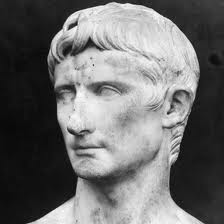 And the shepherds returned, glorifying and praising God for all they had heard and seen, as it had been told them. Luke 2:20
And the shepherds returned, glorifying and praising God for all they had heard and seen, as it had been told them. Luke 2:20
The overwhelming response to the news of the birth of Christ throughout the Christmas story is one of praise. It is in Mary’s Magnificat (the Latin verb for ‘glorifies’) in which Mary gives a shout of exultation followed by a series of reasons why God is to be praised. It is in Zechariah’s prophecy which has become known as the Benedictus (the Latin word for ‘praise be’). It is in the Gloria that the angels sing to the shepherds: “Glory to God in the highest”. It is in the way that the powerful Magi fall down in front of the tiny infant and worship him. It is in the way that the shepherds return ‘glorifying and praising God for all that they had heard and seen’.
And honestly, there is plenty to be praised! These worshippers tells us, each in their own unique and individual ways, that this baby means justice for the oppressed, a Saviour from sin, the reconciliation of God to his people, the possibility of serving God by living holy and righteous lives, light for those in darkness and death, peace on a troubled earth, good news for all people, a King whose reign is eternal and a Shepherd to protect and provide for his flock. And these are just a few things; if you read through the Magnificat or the Benedictus you will find more. Read through the Bible you will find even more!
It is a strong reminder that the only appropriate response to this overwhelming news of what God has done is our praise and worship. As we turn our praises to God, worship also has a way of transforming the worshipper; it takes us away from our current troubles and concerns and focusses our minds on the bigger picture. For the people in the Christmas story, this was not the end. Yet the challenges ahead, whether the safety of their new baby, the return to a dark and unwelcoming hillside or a long journey home, must have paled to insignificance as they praised God for what they had just seen and witnessed.
Father, we worship and adore you for this amazing story of how your Son entered our world, how He took on human flesh to be with us and to save us. May we sing with full and glad hearts of what you did all those years ago and for its continuing truth and relevance for us today. This Christmas, as we celebrate with family and friends, we acknowledge that our greatest celebration is in what you have done for us. In the name of Jesus Christ our Lord, Amen.


